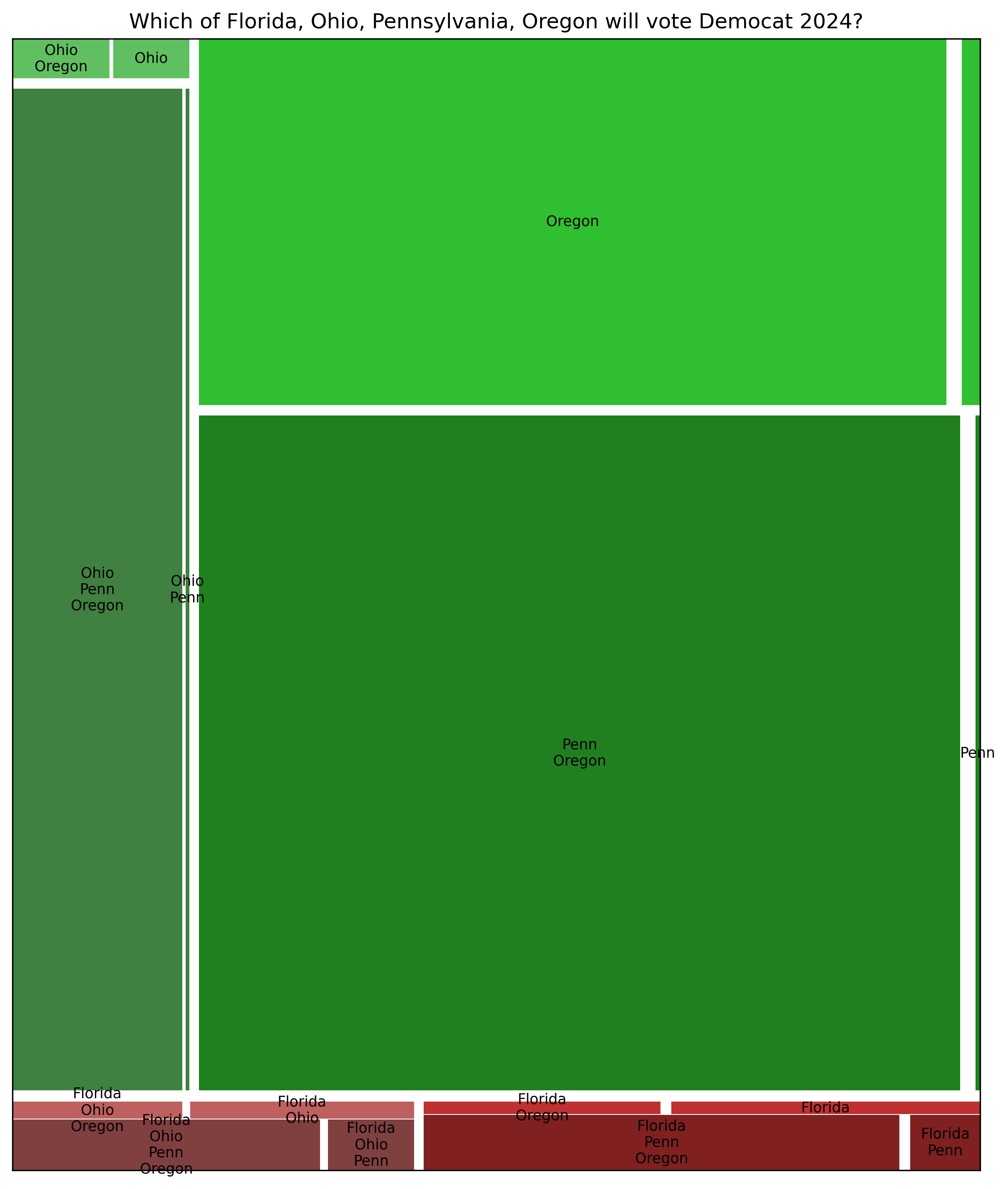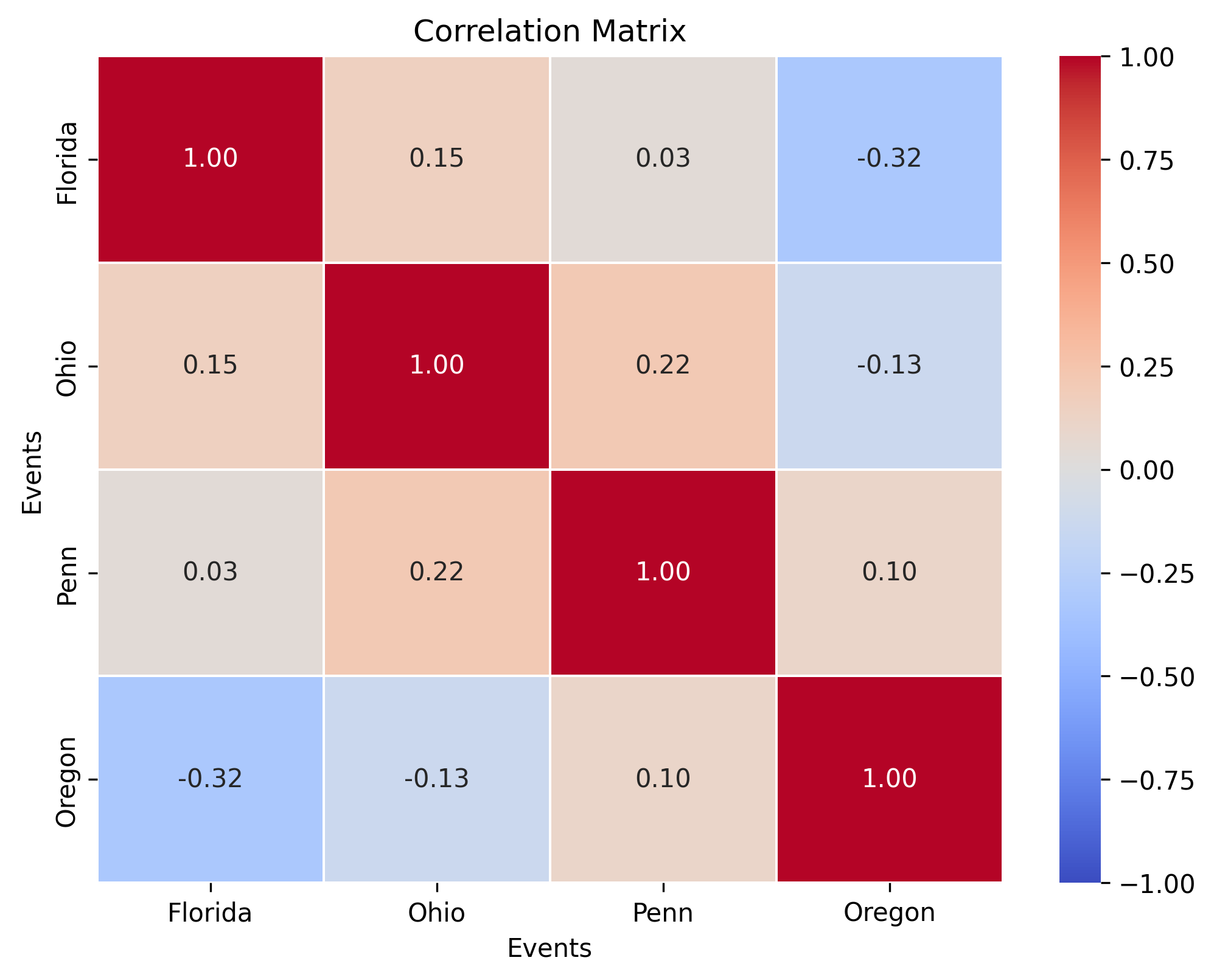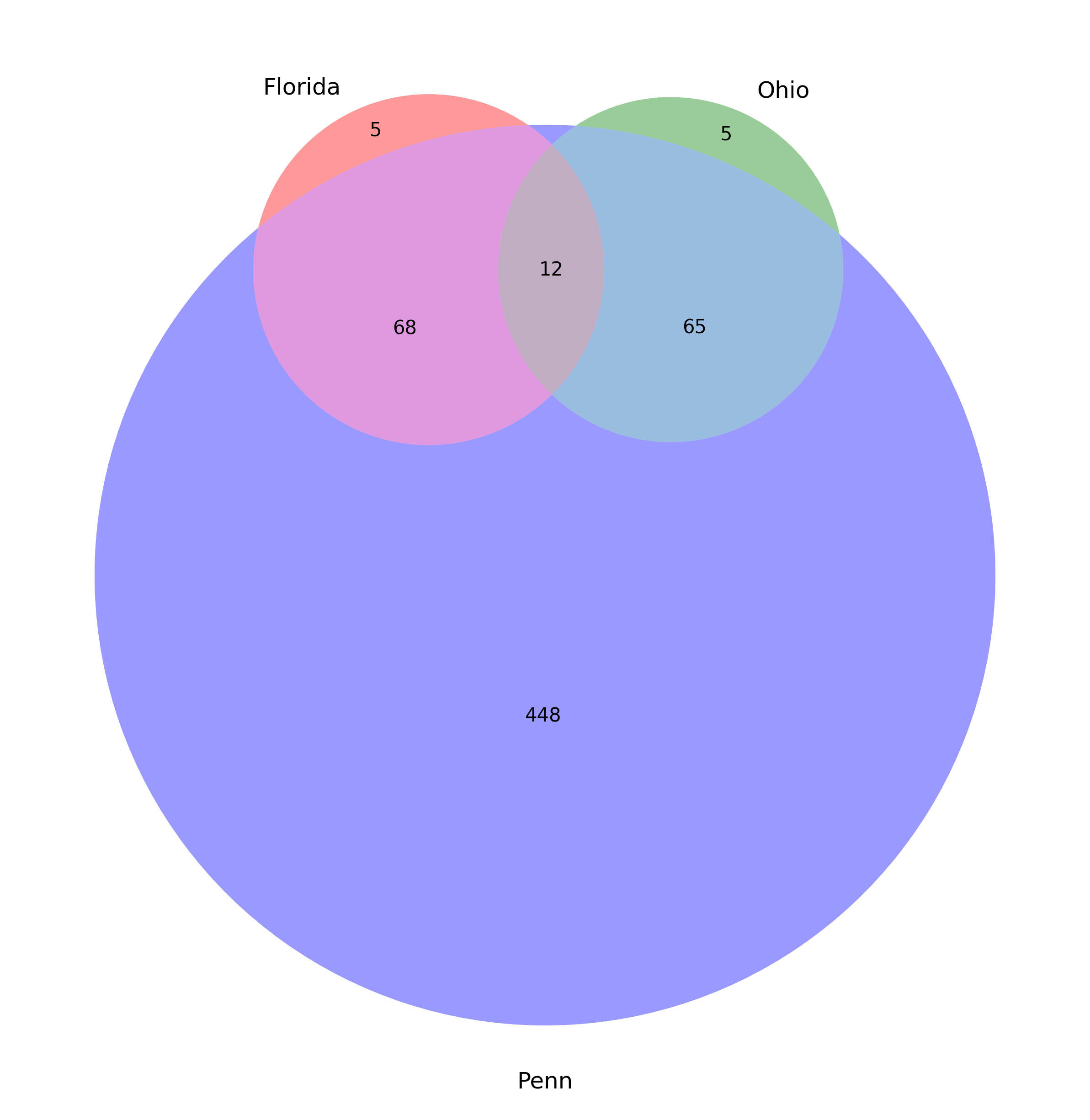This will resolve after the 2024 US presidential election. This will resolve those states as 'yes' where the Democrats get more electoral college votes than the Republicans, and 'no' otherwise.
🏅 Top traders
| # | Trader | Total profit |
|---|---|---|
| 1 | Ṁ628 | |
| 2 | Ṁ570 | |
| 3 | Ṁ166 | |
| 4 | Ṁ135 | |
| 5 | Ṁ95 |
People are also trading
@1941159478 Any particular reason why these four? I'd be interested in a similar market for the top 4 most likely tipping point states from the 2020 538 forecast.
@Conflux this market has Oregon at about 8% to go R. I think a lot of that is because ppl aren't locking up their mana to bet down probabilities from 0.8 to 0.1%. But about 3-5% actually seems reasonable to me. In an R landslide election (imagine a recession happens and Nikki Haley wins the nomination, and Biden actually become senile) it would be a plausible outcome.
@BenjaminShindel however, the "Florida YES, Ohio YES, Pennsylvania YES, Oregon NO" scenario will not be happening XD
@BenjaminShindel Yeah, I guess that's a fair point. Easy to forget that Oregon isn't actually quite as blue as California and Washington.
Actually, now that I think about it, the "Florida YES, Ohio YES, Pennsylvania YES, Oregon NO" scenario reminds me of this criticism someone had of the 538 model once. (I can't find a link to this, but I'm pretty sure it's real? Some details might be wrong.) They noticed that they published the model's inter-state correlations (so if, eg, it gets a poll of Pennsylvania, it knows how much to adjust the Oregon forecast if there haven't been recent Oregon polls) and discovered that some of them were negative - maybe like, between Washington and Mississippi. Which, on the face of it, seems ridiculous - if Biden's doing so well that he wins MS of course he'd easily win WA.
But then 538 (or maybe someone else) mentioned a historical reason that negative correlations are reasonable. Instead of a landslide, the election could be more like a realignment. No Republican won a Mississippi election between a 1876 to 1960, but that changed in 1964 — an LBJ Democratic landslide everywhere but the Deep South.
Anyway, that scenario is still extremely unlikely for 2024, but it's not as totally absurd as it seems on its face.
@BenjaminShindel Thanks everyone so far for participating in this convoluted market! Here is a mosaic plot of the current result (I haven’t figured out how to automatically update it yet unfortunately):

I tried to choose some populous swing states that were kind of different from each other and would hopefully together be indicative of the overall election results. Oregon was just a blunder because when I checked the Wikipedia table of swing states, I was looking at the column for the 2000 election instead of 2020. What would you all think of combination of the three of Pennsylvania, Michigan, Arizona?
@Conflux Apparently we are collectively currently forecasting a significant negative correlation between Democrats winning Florida and Oregon. But since people are pretty sure about Oregon, it might very well just be a rounding error due to the AMM liquidity.

@BoltonBailey Yeah, I think that makes sense and it's probably more fun for betting. The downside is that with that we don’t have the entire joint probability distribution. My main reason for making this market was to try out stuff with joint distributions. I guess my lesson for this sort of market is to stick close to 50-50 individual outcomes (because 1/2^4=6.25% is a totally reasonable) or to keep to three outcomes. To wit, here’s a Venn diagram ignoring Oregon (with the probabilities in thousandth):
